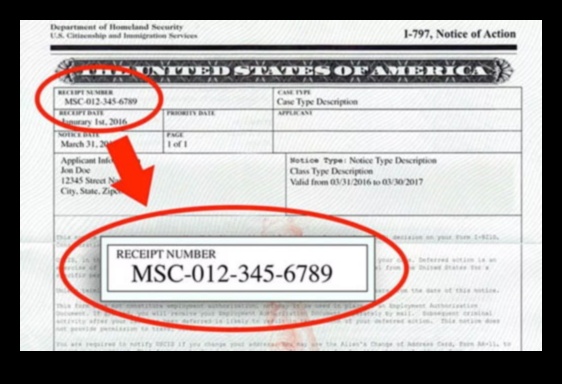Immigration Lawyers Help You Get to Your Dream Country


What Do Immigration Lawyers Do?
Immigration lawyers are legal professionals who specialize in immigration law. They help people who are seeking to immigrate to the United States or who are already in the United States and are facing immigration issues.
Immigration lawyers can help with a wide range of immigration issues, including:
- Obtaining a green card
- Applying for citizenship
- Resolving deportation orders
- Fighting removal proceedings
- Applying for visas
Immigration lawyers are also able to provide legal advice on immigration-related issues, such as:
- How to file an immigration petition
- What documents are required for an immigration application
- What are the different types of visas available
- How to appeal a denial of an immigration application
If you are facing an immigration issue, it is important to speak to an experienced immigration lawyer. An immigration lawyer can help you understand your rights and options and can represent you in immigration proceedings.
| Topic | Answer |
|---|---|
| What is an immigration lawyer? | An immigration lawyer is a legal professional who specializes in immigration law. |
| What do immigration lawyers do? | Immigration lawyers help people with a variety of immigration-related issues, such as: |
| How do I find a good immigration lawyer? | There are a few things you can do to find a good immigration lawyer, including: |
| What is the cost of an immigration lawyer? | The cost of an immigration lawyer can vary depending on the complexity of your case and the experience of the lawyer. |

What do immigration lawyers do?
Immigration lawyers are legal professionals who specialize in immigration law. They help their clients navigate the complex immigration system and represent them in legal proceedings. Immigration lawyers can help with a variety of immigration issues, including:
- Obtaining visas for foreign nationals to come to the United States
- Applying for green cards for permanent residency
- Resolving immigration-related criminal charges
- Fighting deportation orders
- Obtaining citizenship
Immigration lawyers play a vital role in helping people to immigrate to the United States and to achieve their goals in this country.
What do immigration lawyers do?
Immigration lawyers help people navigate the complex legal system of immigration law. They can assist with a variety of immigration-related issues, including:
- Obtaining visas for foreign nationals to come to the United States
- Applying for green cards for permanent residency
- Resolving deportation orders
- Fighting for asylum and refugee status
- Dealing with other immigration-related issues
Immigration lawyers are essential for people who are facing complex immigration issues. They can provide valuable legal advice and representation, and help their clients achieve their immigration goals.

What do immigration lawyers do?
Immigration lawyers help people navigate the complex immigration laws and regulations of the United States. They can help with a variety of immigration-related issues, including:
- Applying for a visa or green card
- Appealing a denial of a visa or green card
- Representing clients in immigration court
- Diplomatic visa processing
- Naturalization
- Deferred Action for Childhood Arrivals (DACA)
- U-Visas
- T-Visas
- VAWA
Immigration lawyers are essential for anyone who is facing an immigration-related issue. They can provide legal advice and representation, and help their clients achieve their immigration goals.

5. What is the process of hiring an immigration lawyer?
The process of hiring an immigration lawyer can vary depending on the specific case, but there are some general steps that you can follow.
1. Find a qualified immigration lawyer. The first step is to find a qualified immigration lawyer who can help you with your case. You can do this by doing a search online, asking for referrals from friends or family, or contacting your local bar association.
2. Schedule a consultation. Once you have found a few potential immigration lawyers, schedule a consultation with each one to discuss your case and see if they are a good fit for you. During the consultation, you should ask the lawyer about their experience, their fees, and their success rate in similar cases.
3. Gather your documents. Before you meet with your immigration lawyer, you will need to gather all of the relevant documents for your case. This may include your birth certificate, passport, marriage certificate, green card, and any other documents that are relevant to your immigration status.
4. Sign a retainer agreement. Once you have chosen an immigration lawyer, you will need to sign a retainer agreement. This agreement will outline the terms of your representation, including the fees that you will be charged.
5. Work with your lawyer. Once you have signed a retainer agreement, your immigration lawyer will begin working on your case. This may involve filing paperwork, attending hearings, and negotiating with the government on your behalf.
The process of hiring an immigration lawyer can be complex, but it is important to have an experienced lawyer on your side to help you navigate the process and protect your rights.

What are the different types of immigration cases?
There are many different types of immigration cases, each with its own unique set of requirements and procedures. Some of the most common types of immigration cases include:
- Family-based immigration
- Employment-based immigration
- Refugee and asylum cases
- Diversity visa lottery
- Deferred Action for Childhood Arrivals (DACA)
Each type of immigration case has its own set of requirements and procedures, so it is important to speak to an experienced immigration lawyer to learn more about your specific situation and how to best proceed.
Here is a brief overview of some of the different types of immigration cases:
- Family-based immigration: This type of immigration allows U.S. citizens and lawful permanent residents to sponsor their family members for immigration to the United States. Family members who may be eligible for family-based immigration include spouses, children, parents, and siblings.
- Employment-based immigration: This type of immigration allows employers to sponsor foreign workers for immigration to the United States. There are a number of different employment-based visa categories, each with its own set of requirements. The most common employment-based visa categories are the H-1B visa for skilled workers, the L-1 visa for intracompany transferees, and the E-2 visa for investors.
- Refugee and asylum cases: Refugees are people who have been forced to flee their home country due to persecution or fear of persecution on account of their race, religion, nationality, political opinion, or membership in a particular social group. Asylum seekers are people who are already in the United States and are seeking protection from persecution or fear of persecution.
- Diversity visa lottery: The diversity visa lottery is a program that allows up to 55,000 people from countries with low rates of immigration to the United States to apply for green cards each year.
- Deferred Action for Childhood Arrivals (DACA): DACA is a program that allows undocumented immigrants who were brought to the United States as children to receive a renewable two-year period of deferred action from deportation and to obtain work permits.
If you are considering applying for an immigration visa or green card, it is important to speak to an experienced immigration lawyer to learn more about your options and how to best proceed.
7. What are the immigration laws and regulations?
The immigration laws and regulations of the United States are complex and ever-changing. They are designed to manage the flow of people into and out of the country, and to ensure that those who are admitted are eligible to do so. The laws are also intended to protect the interests of American citizens and legal residents.
The main body of immigration law is found in Title 8 of the United States Code. This code sets out the criteria for eligibility for immigration, the procedures for applying for immigration status, and the rights and obligations of immigrants.
In addition to the federal laws, there are also a number of state and local laws that affect immigration. These laws can vary from state to state, and they can cover a wide range of topics, including employment, housing, and education.
The immigration laws and regulations are enforced by a number of government agencies, including the Department of Homeland Security (DHS), the Department of Justice (DOJ), and the Department of State (DOS). These agencies work together to ensure that the laws are being followed and that those who are eligible to immigrate are able to do so.
The immigration laws and regulations are constantly being updated and revised. This is due to a number of factors, including changes in the political climate, changes in the economic situation, and changes in the demographics of the United States.
It is important to stay up-to-date on the latest immigration laws and regulations. This can be done by visiting the websites of the relevant government agencies, or by consulting with an immigration lawyer.
8. What are the immigration benefits and risks?
There are many benefits to immigrating to the United States, including:
- A higher standard of living
- More opportunities for education and employment
- A chance to live in a diverse and multicultural society
- Access to better healthcare and social services
However, there are also some risks associated with immigrating to the United States, including:
- The cost of immigration can be high
- The process of immigration can be long and complex
- There is a risk of discrimination and racism
- Immigrants may not be able to speak English fluently
Ultimately, the decision of whether or not to immigrate to the United States is a personal one. It is important to weigh the benefits and risks carefully before making a decision.
9. What is the future of immigration law?
The future of immigration law is uncertain, as it is constantly evolving in response to changes in the political climate and the needs of the country. However, there are a number of trends that are likely to continue to shape the field in the years to come.
Increased globalization: The world is becoming increasingly interconnected, and this is leading to a greater demand for immigration law services. As more people move around the world for work, study, or family reunification, they will need legal help to navigate the complex immigration system.
Technological innovation: Technology is changing the way that immigration law is practiced. New tools and platforms are making it easier for people to file applications and track their cases, and artificial intelligence is being used to help lawyers analyze complex legal issues.
Increased focus on security: In the wake of the September 11 attacks, there has been a greater focus on security in the immigration system. This has led to new laws and regulations that make it more difficult for people to immigrate to the United States, and it has also put a greater burden on immigration lawyers to ensure that their clients are compliant with the law.
Growing diversity: The United States is becoming a more diverse country, and this is reflected in the growing diversity of the immigration population. This trend is likely to continue in the years to come, and it will require immigration lawyers to have a deep understanding of the needs of different cultures and communities.
The future of immigration law is complex and uncertain, but it is also an exciting time to be an immigration lawyer. The field is constantly evolving, and there are many opportunities to make a difference in the lives of immigrants and their families.
FAQ
Question 1: What is an immigration lawyer?
Answer 1: An immigration lawyer is a legal professional who specializes in immigration law. Immigration law is the body of law that governs the admission, exclusion, and removal of non-citizens from the United States. Immigration lawyers help their clients navigate the complex immigration system and represent them in immigration court proceedings.
Question 2: What do immigration lawyers do?
Answer 2: Immigration lawyers provide a variety of services to their clients, including:
- Helping clients with the preparation and filing of immigration applications
- Representing clients in immigration court proceedings
- Advising clients on their immigration rights and options
- Helping clients with naturalization and citizenship applications
Question 3: How do I find a good immigration lawyer?
Answer 3: There are a few things you can do to find a good immigration lawyer, including:
- Ask for referrals from friends, family, or colleagues who have used an immigration lawyer
- Contact the American Immigration Lawyers Association (AILA) for a list of immigration lawyers in your area
- Do an online search for immigration lawyers in your area
- Meet with a few different lawyers to see if you feel comfortable with them
![Sheffield International Postgraduate Merit Scholarships [year]/[nyear] 12 Sheffield International Postgraduate Merit Scholarships](https://lessmag.net/wp-content/uploads/2025/04/University-of-Sheffield-International-Postgraduate-Merit-Scholarship-390x220.jpg)



